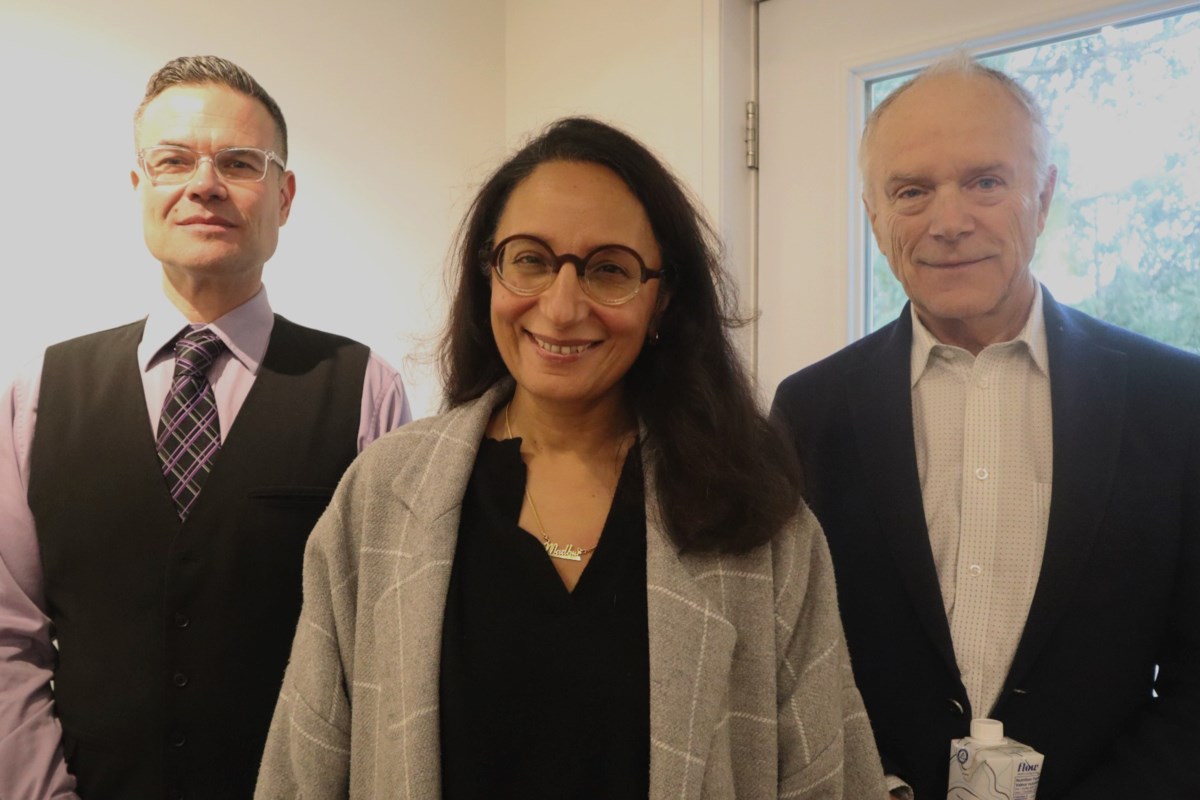Guelph and the surrounding region as a UNESCO city literature site could be possible thanks to Damian Weston, executive director of the Guelph Arts Council.
His announcement to form a committee in 2024 to submit a proposal for the site was made at the reopened Rivermead, the headquarters for the Eden Mills Writers’ Festival on Friday afternoon.
“Judging from UNESCO heritage sites to be a UNESCO literary site has to be good. I would think … it would be a real honour for the community to be on a par with UNESCO heritage site,” said Nicholas Ruddock, local author and doctor, in an interview.
“You know, this is such a unique festival, in structure, geography, in terms of programming that it really does bring. You know, it’s one thing to have … the well known authors, etc. We have a centralized community through the festival that brings them all together. And I think it’s deserving of true international attention as well. Having the UNESCO designation also opens up a lot of opportunities for exchange,” said Weston, in an interview.
Ruddock and Madhur Anand, author and University of Guelph ecology professor, pointed out the vibrant literary community Guelph has with such things as Vocamus Writers Community and independent book store The Bookshelf.
There is only one other UNESCO city of literature in Canada and it’s Québec City. The UNESCO program is part of the Creative Cities Network that started in 2004 with a global scale of 295 creative cities on the list.
The renovations to the Eden Mills Writers’ Festival headquarters were made possible through a $85,000 grant from the Ontario Trillium Foundation.
It has been a challenging year for the festival, said Theresa Ebden, chair of the Eden Mills Writers’ Festival, in her remarks. With in-person activities, free online programming and paying staff it has a financial impact, she said.
“Our attendance has not wavered more than 1,000 people for the last two years since reopening after the pandemic, and ticket revenue only covers nine per cent of our costs. So we have set an ambitious fundraising target of $50,000 about one fifth of our charity’s budget and I’m pleased to announce, as of today, we have already raised 10 per cent of that our fiscal year starts in November,” Ebden said.
To celebrate the Eden Mills Writers’ Festival hosted a panel with local authors and moderated by Judith Pereira, arts editor for The Globe and Mail.
Authors Ruddock and Anand talked about their process and how they fell into writing.
“I think, at the time, it was sort of the most perpendicular thing … just the most opposite thing to what I was doing. Really … the scientific method. I mean, there’s poetry and science, don’t get me wrong, read my book,” said Anand.
“It’s a failure of being able to express things in any other way. It’s really what poetry ends up being in this need to express things that I couldn’t express via, you know, how I had been taught to express myself and the knowledge that I had,” she said.
Her latest book Parasitic Oscillations: Poems is a personal book examining culture and science.
For Ruddock becoming a writer was about being a reader first.
“So I’m liking it a bit to a hockey player who’s okay. And he just goes to make some move in front of the net or shoot the puck to complete something. So you want to try it, to see if you can do it and get the same kind of thing. Then I never really got started writing to put it out into the world, even though I was writing all the way along until I was pretty advanced in age and my daughter’s through the university. And we started to share what we thought were great long sentences,” he said.
His book Last Hummingbird West of Chile released in 2021 is about a sailor from the 19th century and through the sailor the book tackles polarizing topics.
